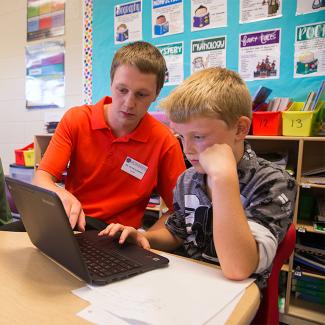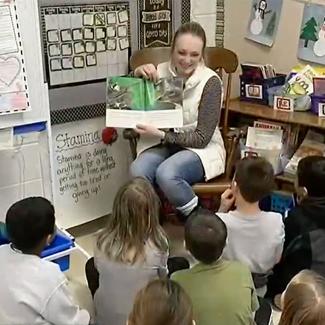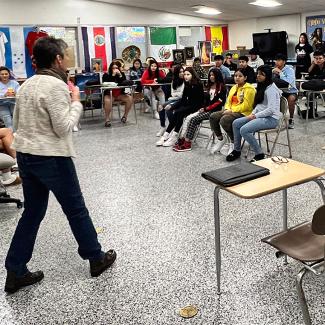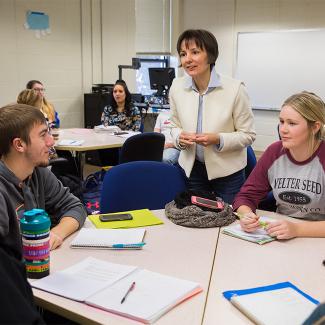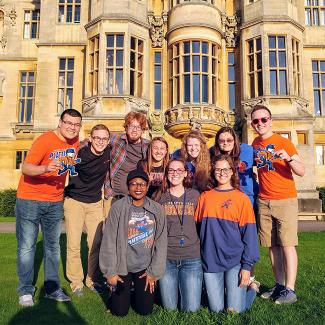What you'll learn studying Education at UW-Platteville
The University of Wisconsin-Platteville School of Education has a rich history of training educators for more than 150 years. UW-Platteville has been preparing teachers since the state’s first Normal School was established in 1866. The School of Education takes great pride in this long-standing tradition and is committed to providing quality educational offerings and programs.
You will learn educational theories and instructional practices that will prepare you to meet the diverse needs of learners. Our dynamic program will also prepare you to be a change agent in the schools and communities that you will serve in the future.
Our team of dedicated faculty members provide instruction in small classes, and you will put your skills into practice by student teaching and volunteering in local schools.
A Focus on Rural Education
With our education programs, you will learn through a place-based framework with a rural education focus, which supports our data that 80 percent of our graduates go on to teach in rural communities in the Midwest and throughout the country. Place-based education is learner centered education that connects classrooms to communities. By focusing on the strengths of the local context, particularly rural communities, teachers help students connect classroom lessons to the world around them. This serves to increase student engagement and help students feel supported and challenged in ways that feel meaningful to them.
No matter where your career leads you, our place-based framework will equip you with the essential tools and skills to be an effective educator. UW-Platteville’s teacher preparation program will help you gain the skills necessary to positively influence students’ academic achievement as well as their social and emotional growth.
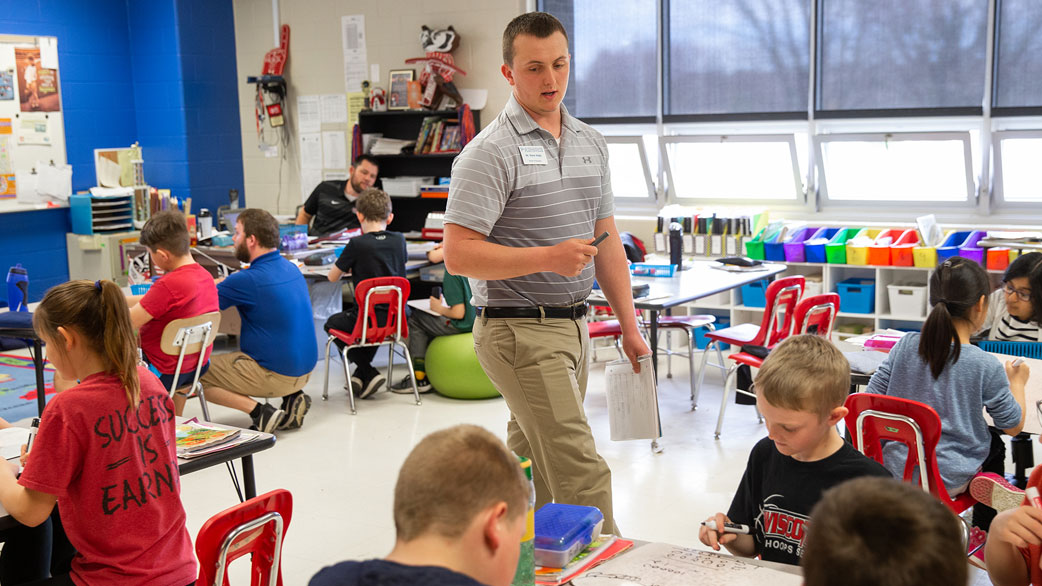
Elementary–Middle Level Education (K–9)
Our elementary education program prepares you to teach students from kindergarten through 9th grade across a variety of subjects. As a broadly trained and adaptable educator, your degree will be highly marketable upon graduation. While the licensure band is comprehensive, you have the flexibility to customize your academic experience by selecting electives that align with your interests. You'll develop the skills necessary to effectively support students' academic, social, and emotional growth as an impactful educator.
Designed for Your Success
- Cohort Model: Engage with a network of supportive peers throughout your studies, building relationships that will extend beyond graduation.
- Substitute Teaching Opportunity: Become a licensed short-term substitute in Wisconsin, allowing you to serve school districts and start building professional connections with current teachers and administrators.
- Practicum Experience: Participate in two hands-on practicum experiences in local schools, providing you with classroom experience before you begin student teaching.
- Licensing and Professional Development Support: Receive in-house assistance with licensing and professional development to ensure you’re well-prepared for your teaching career.
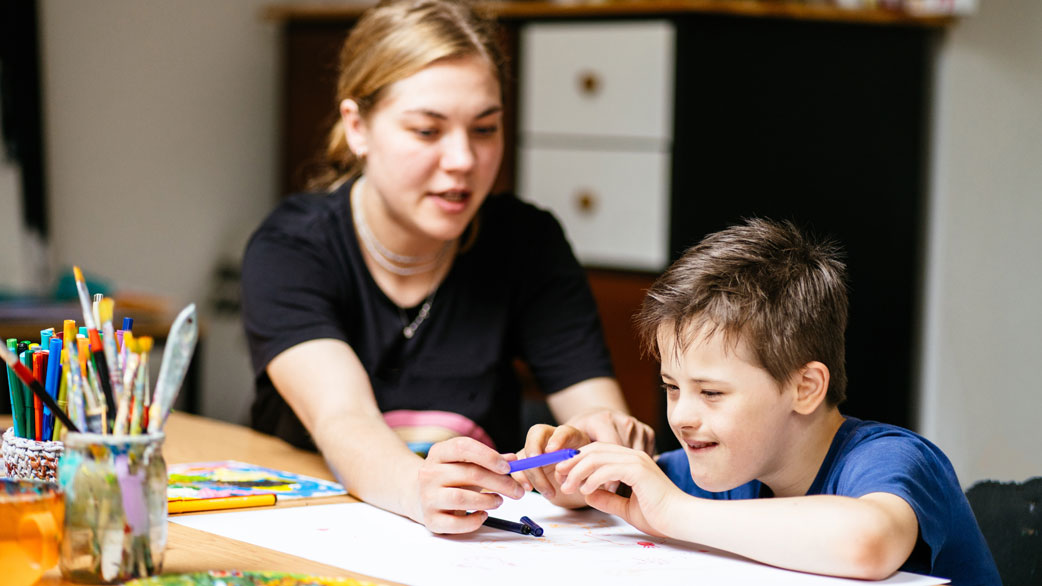
Special Education (K–12 Minor)
Our Special Education (K–12) minor is designed to provide you with hands-on experience and specialized knowledge in supporting students with special needs. In this program, you’ll engage in coursework that covers the management of children with disabilities, addresses learning and language disorders, and explores effective inclusion strategies to meet the diverse needs of learners.
When paired with the elementary education major, it results in a cross-categorical license, making you a more versatile and marketable candidate in the field of education.
This minor builds upon the guiding principles of the elementary education major by further exploring individualized educational practices. You'll learn to maximize the potential of students with disabilities in various settings through inclusive practices.
Key Features of the Special Education (K–12) Minor:
- Practicum Experience: Gain valuable hands-on experience in a special education setting, providing you with practical knowledge before you begin student teaching.
- Collaboration: Work closely with on-campus and off-campus offices to explore special education topics introduced in your coursework, enhancing your learning through real-world applications.
- IEP Development Seminar: During student teaching, participate in an IEP (Individualized Education Program) Development seminar to prepare you for creating effective educational plans for your students upon graduation.
With the licensure option provided by this minor, you'll enhance your employability and be better equipped to make a meaningful impact in the lives of students with special needs.
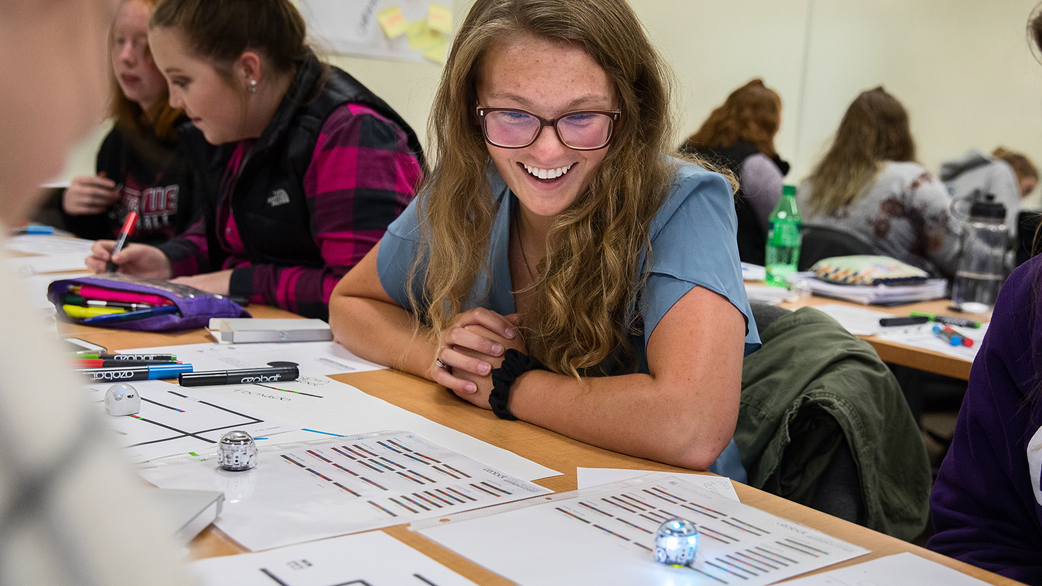
Middle-Secondary Education (4th–12th)
Our education programs are dedicated to developing a teaching workforce that meets the evolving needs of the community. As a middle-high school education major, you will have the flexibility to customize your degree by choosing from a diverse range of approved majors and minors. This allows you to tailor your education to your interests and career goals. You'll also have exciting opportunities to apply the skills you learn on campus within local school systems, gaining valuable hands-on experience.
Content area options:
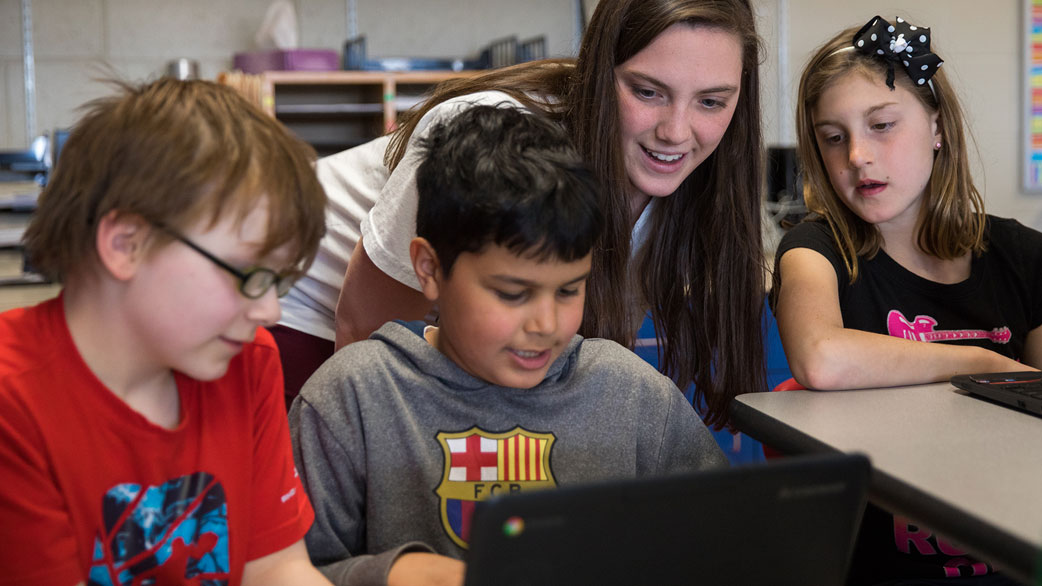
K-12 programs
The School of Education is committed to preparing teachers who possess the knowledge, skills, and dispositions necessary to be effective, reflective practitioners in K-12 schools. In this program, you'll develop strong communication skills and an understanding of human relations, which are essential for fostering a positive learning environment. You'll also gain experience in integrating technology and media into classroom instruction, ensuring that your teaching methods are both modern and engaging. Additionally, you'll acquire a deep understanding of subject matter content while mastering effective instructional practices.
Content Area Specializations:

Master of Science in Educational Leadership
Prepare to lead where it matters most. Our Master of Science in Education in Educational Leadership equips experienced educators with the skills and confidence to serve as effective K–12 principals, especially in rural schools and communities. Delivered in a supportive, cohort-based hybrid format, the program blends real-world expertise from veteran Wisconsin school administrators with hands-on practicum experiences. In just 16 months, you’ll strengthen your instructional leadership, decision-making, and community-building skills while earning principal licensure. It’s a practical, flexible pathway for educators ready to take the next step in their leadership journey.

Rural School Collaborative
Led by UW-Platteville’s School of Education, the mission of the collaborative is to build sustainable rural communities through a keen focus on place, teachers, and philanthropy.
Trusted, quality programs
The School of Education's teacher education programs at UW-Platteville satisfy the requirements for licensure through the Wisconsin Department of Public Instruction. Wisconsin teaching licenses are highly regarded in other states, assuring the programs meet standards to produce graduates licensed and ready to teach. We offer advising for all current and prospective students on the licensure requirements for their respective states. Prospective students should contact the School of Education at their general number for assistance in planning.
Careers in Education
The field of education is a calling for many people who want to make a difference and enrich the lives of students. Whether you have known from an early age that you want to become a teacher or are drawn toward administration, curriculum design, or another aspect of education, attending a university for teachers can prepare you for many exciting careers in public and private institutions.
An education degree may be the first step to a career in the classroom or as an administrator, which may require earning an advanced degree. Career opportunities can include:
- Elementary school teacher
- Middle school teacher
- High school teacher
- Tutor
- Coach
- Education Program Coordinator
- Academic or Club Advisor
- School Public Relations Representative
- Special Education Teacher
- Substitute Teacher (Short term or Long term)
- Disability Support Specialist
- Adaptive Technology Consultant
Teachers create lesson plans, provide instruction for entire classrooms or groups of students, grade assignments, communicate with students’ parents and guardians, and prepare students for standardized testing. Elementary and middle school teachers also develop and enforce classroom rules and provide supervision of the children in their care.
Regardless of their roles, education professionals shape the lives of the children and adults in their communities in countless ways. Earning a teaching degree provides a solid foundation for a long and successful career in the field of education.
Meeting Wisconsin License Requirements
The UW-Platteville School of Education program is designed to meet all of the educational requirements for the initial licensing in the State of Wisconsin. The program may not meet requirements of other states and we are unable to make a determination about whether the program meets requirements of other states. If you are interested in certification outside of the state of Wisconsin, we encourage you to contact the appropriate state licensing agency to seek guidance and verify requirements before beginning a program, as well as during your program of study.

More than Memorization
As an education student at UW-Platteville, you will have access to opportunities designed to help you learn and hone your skills, both inside and outside of the classroom. You’ll have access to opportunities for student teaching, undergraduate research, internships, and university events that can prepare you to succeed as a future educator.
Student teaching
One of the most important phases in preparing for your professional teaching career is student teaching. As a student teacher, you’ll learn from classroom experiences and reflect upon them with your university supervisor and cooperating teacher. You’ll also share instructional responsibilities in the classroom with a cooperating teacher.
You should apply for admission to student teaching in December preceding the academic year in which your student teaching will take place. Read more about the requirements for student teaching and admission to the school of education.
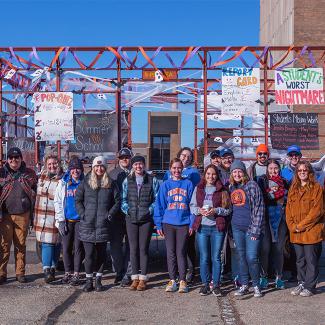
Get more out of your education
Join a club or organization, connect with other education majors, study abroad, or put your education into action through some of these exciting opportunities.
Education Alumni Make Impact
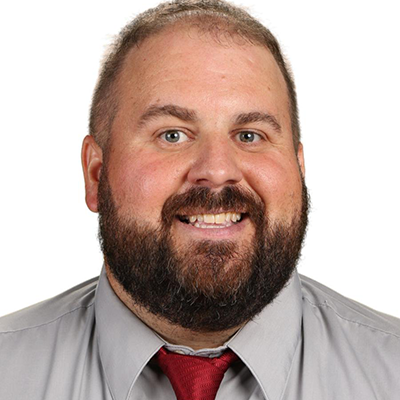
I am proud to be a 4th generation educator (all graduating from UW-Platteville). The influence of my parents and seeing the lives they impacted are why I pursued a career in education.
Principal
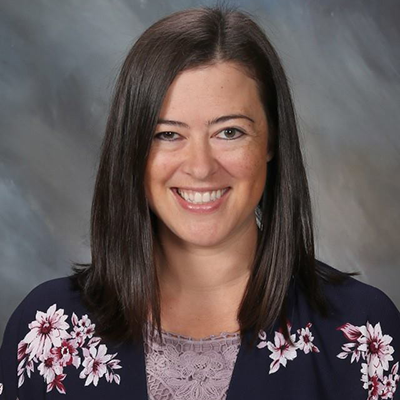
[Growing up], my principal, teachers, and coaches taught me the importance of hard work, perseverance, teamwork, and community involvement. Realizing the impact they had on me and my classmates inspired me to follow in their footsteps and pursue a career in education.
Social studies teacher

Working in a rural school district allows for more opportunities for me as a teacher, such as coaching multiple sports and participating in different organizations and committees, while it also provides opportunities for closer relationships with staff and students.
Fifth-grade grade teacher
Department of Public Instruction
The School of Education's undergraduate programs including majors, minors, and concentrations are approved by the Wisconsin Department of Public Instruction (DPI). These programs meet requirements of Wisconsin's PI 34 administrative rules.
Act 166 Annual Report
The Wisconsin Department of Public Instruction produces an annual report of the State’s educator preparation programs required by the Wisconsin State Legislature Act 166. The report includes information on program completers and first time passage rates on the sate required performance assessments.

